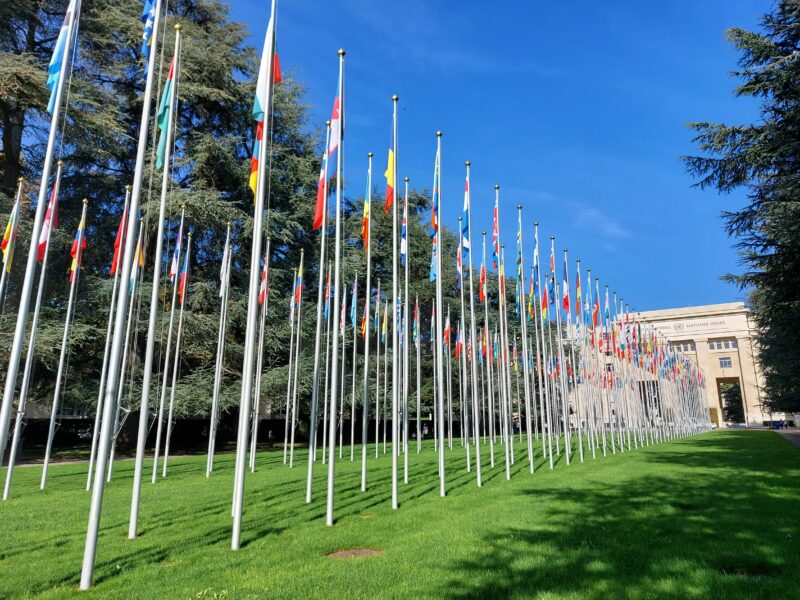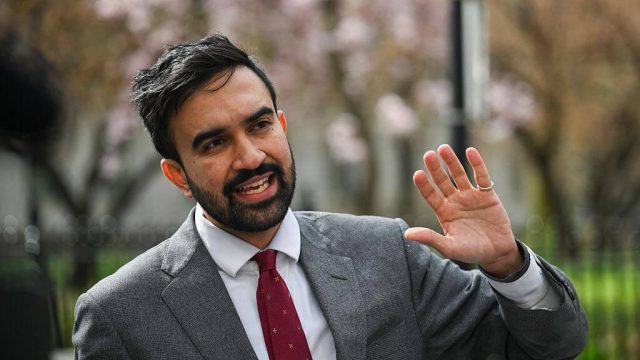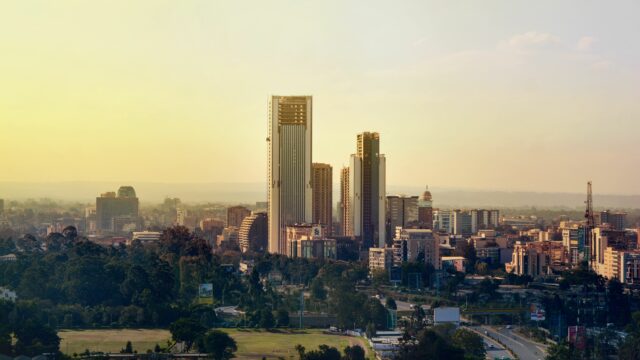Coordinating climate action among different international bodies
Remarks from the Nairobi UN Civil Society Conference

Vitória Gonzalez is a Brazilian sociologist and Researcher at Plataforma CIPÓ is an independent, non-profit, women-led research institute dedicated to issues of climate, governance and international relations from Latin American and Global South perspectives.
Plataforma CIPÓ is co-leading the task force on climate action of the T20 Brasil, the engagement group of think tanks and research institutes of G20. In light of the work we’ve been doing, my brief remarks during the ImPACT Coalition on IFA and FfD’s session during the UNCSC in Nairobi, in early May, focused on highlights and ideas to increase the ability of the international finance institutions to promote climate action, in line of recent developments within the G20 and other multilateral spaces.
The Brazilian presidency of G20 has 3 priorities: (1) social inclusion and fight against hunger and poverty; (2) energy transitions and the promotion of sustainable development; and (3) reform of global governance institutions. To help achieve these 3 priorities, it created some new frameworks, including the Task Force on Climate Change, which is temporary.
This taskforce has two priority areas:
- The first is supporting a political move to enhance developing countries to build institutional capacity to design and implement robust and just national transition plans; also helping to mobilize resources and to tackle barriers to finance access and other negative externalities.
- The second priority area is to set principles for accelerating structural changes in the global financial architecture, so that it is more aligned with the goals of the Paris Agreement and specifically with Mission 1.5ºC.
Considering this, the main efforts of the G20 has been to ensure a path towards Mission 1.5 – but it is clear that this will only take place if we are able to deliver on the means of implementation, in the form of finance, capacity building and technology transfer, to allow countries, especially from the Global South, to promote a just transition.
This requires a strong coordination between all relevant stakeholders. In the scope of the UNFCCC, there is attempts to improve this coordination through the recently created COP Presidencies Troika (United Arab Emirates-Brazil-Azerbaijan). In terms of the IFIs, there are also multiple proposals being advanced, including the Bridgetown Initiative and the Summit for a New Global Financing Pact. In the G20, Mission 1.5 efforts are now being led by the mentioned Climate TF. However, these initiatives are still somewhat operating in silos. We have identified, for instance, that in the G20, of the 20 working groups, there are 15 that currently address climate and just transition related issues.
“ We should keep in mind that talking about means of implementation, is talking about death and life – as we can see with the huge current floods here in Kenya and also in the South of Brazil.”
Despite the efforts of Climate TF, which at least this year is trying to bring together both the G20 Sherpa and Finance tracks; coordination between these working groups is weak – which can lead to duplication of efforts and jeopardize the G20’s ability to deliver a more systemic response to climate challenges.
This also contributes to a weak coordination between the G20 efforts and the efforts taking place in different fora. For instance, there is a strong overlap between the G20 agendas and the Summit of the Future agenda. The Pact for the Future contains discussions on Debt restructuring, International tax cooperation, SDR channelling for global crisis response, and MDBs reform, that are also taking place in the G20. They are extremely relevant if we want to make timely progress on delivering on the means of implementation for climate action.
And we should keep in mind that talking about means of implementation, is talking about death and life – as we can see with the huge current floods here in Kenya and also in the South of Brazil. But again – G20 officials are not necessarily dialoguing with UN and member states officials working in NY towards the Summit of the Future.

In this context, we at CIPÓ in our capacity as T20 Climate Action Co-Leads have been pushing for two specific recommendations: Establishing a permanent G20 body for climate action, and establishing a permanent facility to promote regular dialogue between the proposed G20 body for climate action, the COP Presidencies Troika, representatives of the IFIs and ECOSOC to ensure coherence and international coordination in efforts to mobilize the means of implementation for just transitions. This effort aligns the UNSG vision for a bi-annual summit between G20, ECOSOC and IFIs.
The mandate of this proposed framework could include, among other priorities:
- Mainstream climate throughout the working agenda of all G20 working groups so as to ensure a systematic integration of climate considerations into the strategies and priorities advanced by the G20 Sherpa and Finance tracks;
- Monitor the implementation of climate-related commitments established in the G20 Leaders Declaration, and report findings on an annual basis to improve transparency and accountability of the G20 climate pledges.
Finally, it’s worth noting of course Summits are important; but can often lead to no concrete actions. That’s why we believe it is important to institutionalize these channels of dialogue, so that they are regular, predictable, and can avoid the duplication of efforts and ensure that all relevant global governance institutions are aligned with the goal of delivery the means of implementation to promote the global transition to green economies, while also tackling social inequalities.
- Vitória Gonzalez, Plataforma CIPÓ


